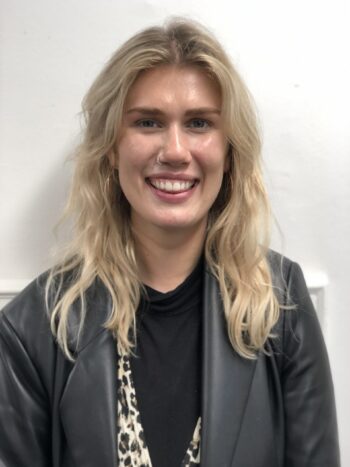In this special episode to mark the end of a challenging year – teaching through a pandemic – I am in conversation with a School Direct student and an NQT.
Maimun and Poppy speak about their experiences of teaching through the pandemic, their challenges, growth and the support received. They highlight the importance of empathetic leadership and the impact of working in a supportive environment.
VIEW TRANSCRIPT
Maimun
School Direct Student
Having just completed her training year as a PGCE School Direct Student in primary education, Maimun will soon be an Early Career Teacher (ECT). She previously worked as a Year 1 Teaching Assistant, an experience which she says has fuelled her drive and passion to pursue teaching.
Come into it with the mindset of: I’m going to be learning in ways, I don’t think I would ever be learning…There are lessons in everything you’re doing!
Maimun

Poppy
Newly Qualified Teacher (NQT)
Poppy has recently completed her NQT year. Prior to becoming a Teacher, Poppy worked as a Graduate Teaching Assistant. She then completed a School Direct teacher training course, all of this being in the school she teaches at now.
At University, Poppy studied a BA Hons in Drama whilst having a part- time job teaching after school drama clubs in various schools in North London; this ignited her desire for working with young people. Poppy has an interest in promoting equality in schools and providing equal opportunities for all children to succeed no matter the circumstance.
Crying is seen as a sign of weakness but I honestly think it’s the exact opposite. It’s such a strength to be able to acknowledge and deal with your emotions. I actually think it’s a real strength.
Poppy
Learning points:
- 04:25 – On emotions
- 11:40 – On adaptation and flexibility
- 18:34 – On wellbeing
- 37:05 – On Leadership
Resources
YouTube – Behaviour management videos
Pinterest – Inspiration for school displays
Book: My Hair by Hannah Lee
Have you left a review for Voicing Education – The Podcast?
Each and every review really does make a difference. If you are enjoying the episodes, I’d just like to ask for you to share your appreciation.
Please leave a review:
- Head to voicingeducation-thepodcast/apple or search Voicing Education – The Podcast in Apple Podcasts. (This is easier to do on your phone.)
- Scroll down and click the 5-star rating.
- To show extra appreciation and support – please add a quick sentence (or two) to share what you enjoy about the show.

